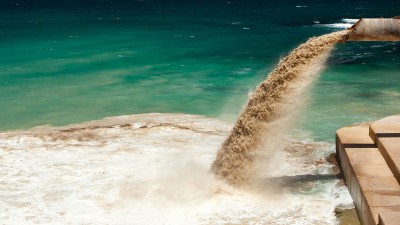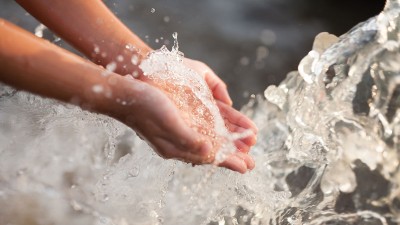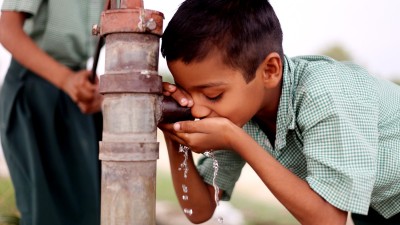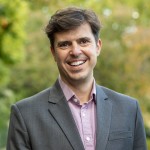

Water innovation and sustainability
As we navigate an era of increasing water scarcity, pollution and unsustainable consumption, transformative solutions and scientific breakthroughs to water management is essential.
Recognising this urgency, this transdisciplinary research programme combines innovation, cutting-edge technology, and behavioural change strategies to drive water resilience and sustainability.
Research areas
This programme aligns to UN Sustainable Development Goals (SDGs) SDG3, SDG6, SDG7, SDG9, SDG11, SDG13, SDG14, SDG15 and SDG17.
This programme focuses on three pivotal areas:

Biotechnology for resource recovery
Embracing the potential of biotechnology, we aim to harness the untapped value of wastewater for reducing greenhouse gases, producing bioenergy and extracting valuable products, fostering a circular approach to water treatment.
This area is led by Dr Bing Guo.
Several ways that the Institute has been supportive and inspiring to me. One, the Institute sustainability seedcorn fund has supported a student research project on waste manure to biogas and reducing antimicrobial resistance, which has led to industrial collaboration with SME on Surrey research park, and the student has won competitive travel grant from EBNet to present at international conferences.Dr Bing Guo, Co-Lead
Two, the Institute has provided opportunities to broaden my network internally and externally, I have increased amount of interactions with academics in FHMS and FASS which inspired cross disciplinary project ideas and expanded the breadth of my research.

Water literacy and sustainable water behaviour
Through education, awareness campaigns, smart technology, artificial intelligence, and behavioural interventions, we empower individuals and communities to make informed choices to use water effectively.
This area is led by Dr Pablo Pereira-Doel.
The Institute for Sustainability nurtures a dynamic ecosystem of cross-disciplinary expertise, fostering the unlocking of innovative solutions to address the urgent global challenge of water sustainability.Dr Pablo Pereira-Doel, Co-Lead

Drinking water quality
Small and large infrastructure development is essential to ensure sustainable provision of safe drinking water. This includes advancement in monitoring and management, materials, supply chain optimisation, artificial intelligence integration, and innovative methodologies to enhance the accessibility of clean water systems.
This area is led by Dr Katherine Pond.
Connections with others in the University working on related areas has been interesting.Dr Katherine Pond, Co-Lead
Co-Leads

Dr Bing Guo
Professor in Environmental Engineering and Microbiology
Biography
Dr Bing Guo is a Professor at the Department of Civil and Environmental Engineering, School of Engineering, and Institute for Sustainability fellow and Programme Lead on Water Innovation and Sustainability.
She joined the University of Surrey as a Lecturer (Assistant Professor) in Civil and Environmental Engineering in 2020. She received her PhD and MEng in Civil Engineering from McGill University, Canada, and BEng in Environmental Engineering from Beijing Normal University, China.
Prior to joining Surrey, she was awarded the Quebec Postdoctoral Research B3X scholarship in 2019 as a joint postdoctoral fellow at the University of Alberta, Canada and Delft University of Technology, Netherlands.
Her research interests include microbial ecology modelling (immigration theory, microbial interactions and networks), environmental biotechnology for waste to energy and wastewater treatment (anaerobic digestion, anammox, symbiotic biofilms), antimicrobial resistance (AMR) in environment, omics and bioinformatics tools, with funding support from multiple research councils (BBSRC, EPSRC, NERC, RS) in collaboration with water companies and biogas industry.

Dr Pablo Pereira Doel
Director of Undergraduate Hospitality Programmes; Human Insight Lab co-director; Sustainability fellow and Water programme co-lead at the Institute for Sustainability; Visiting Fellow, Center for Tourism Research at Wakayama University (Japan)
Biography
Dr Pablo Pereira-Doel is the director of the Undergraduate Hospitality Programmes at Surrey Business School, the lead of the Institute for Sustainability's Water literacy and sustainable water behaviour programme, and the co-director of the Human Insight Lab.
After several years in the hospitality/tourism industry in Spain, France, The Gambia, and the UK, he is now an applied social scientist who uses sustainability-oriented innovations, consumer nudging, persuasive communication, design thinking, and experimental research methods to create pro-environmental behaviour change. His consumer and industry testing research contributed to developing a smart water-saving technology to nudge users to take shorter showers.
Pablo's problem-solving transdisciplinary research has involved partnerships with several companies in the hospitality industry (e.g. Scandic, Hilton Hotels & Resorts, TUI, Hostelling International, and others) and beyond (e.g. Aguardio ApS, Anglian Water, Northumbrian Water, L'Oréal, and the UN Environment Program).
His research has been funded through internal scholarships, an ESRC SeNSS Industry Engagement Fund, three ESRC Impact Acceleration Funds, a UKRI Global Challenges Research Fund, and an ESRC Postdoctoral Fellowship. Pablo is the first researcher in the UK to be awarded an ESRC postdoctoral fellowship in hospitality/tourism.

Dr Katherine Pond
Associate Professor in Environmental Engineering
Biography
Kathy has over 20 years experience in cross-disciplinary national and international research and consultancy focusing on improving water quality and public health in low and high income countries. She has close collaboration with the World Health Organisation (WHO) since joining Surrey in 2000 and is the lead contact for the WHO Collaborating Centre for the Protection of Water Quality and Human Health held by the University of Surrey.
Prior to joining the Robens Centre for Public and Environmental Health, University of Surrey in 1996 Kathy worked for four years as co-ordinator of a national coastal pollution project.
She spent a 2-year secondment at the WHO European Centre for Environment and Health, Rome, Italy where she worked in the Water and Sanitation Unit.
Since returning to the University she has continued to work as a WHO temporary advisory providing technical and administrative support and training in the field of drinking water quality and human health.
Kathy is now an Associate Professor in the Department of Sustainability, Civil and Environmental Engineering and is the programme lead for the MSc in Water and Environmental Engineering.
Kathy is an invited member of the Drinking Water Inspectorate Advisory Board https://www.dwi.gov.uk/drinking-water-quality-advisory-group/

Water innovation and sustainability